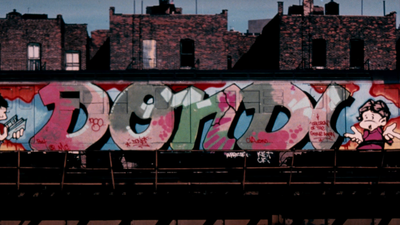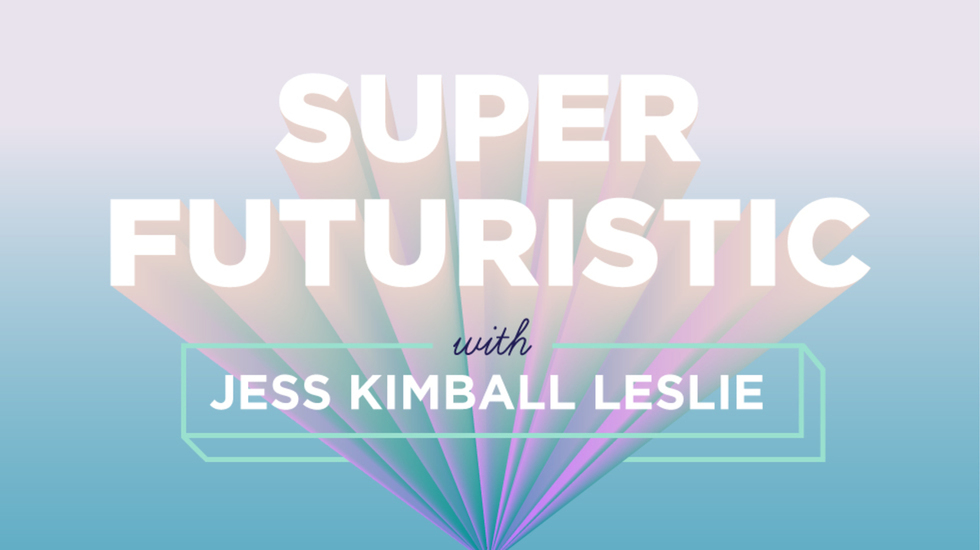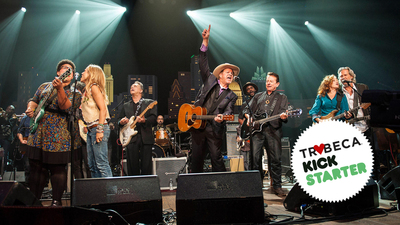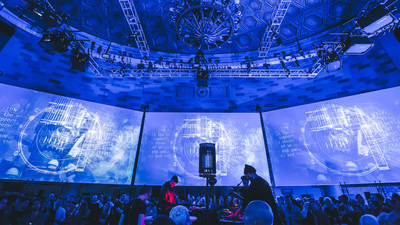
BY JESS KIMBALL LESLIE |
Saving the Music Industry Might Be Easier Than We Think
I have long hoped that someone will do for the MP3 file what Red Bull has done for soda -- change the size, change the quality, and change the price, therefore effectively change the category

Why don't we care about the quality of our music anymore? When I was growing up, my family’s living room was about two things: our record player, and our musical instruments. Music was a communal activity for all the good and the bad of it -- god knows how any Kimball endured the six years that I spent performing the role of Mama Rose on repeat, but if you were a record family like we were, this is how life went.
The audio quality of the music that we played in our house in comparison to what toots out of my arch enemy, the “Apple iBud,” was absolutely sublime: it was live and crackly, fun for all of its feats as well as its flaws, unpredictable and utterly human.
It feels like we’re all living in the musical equivalent of American food in the 1990s.
Today my parent’s hijacked Sansei turntable sits stationed prominently in my living room, asserting my musical political party, but despite collecting the good stuff I often still decant the bad stuff. On Friday and Saturday nights I usually revert to MP3 services like Spotify, and if I’m really desperate, Pandora. (My deep disdain for Pandora stems partially from their putting an advertising executive in the CEO seat of their music company, truly revealing their prerogatives.)
I don’t think I’m unique in consuming such low quality tunes, in fact it feels like we’re all living in the musical equivalent of American food in the 1990s, fueling ourselves with SnackWells and microwave dinners and not really thinking about what we’re consuming and what we’re not, and why. There’s more joy to be had from music in life, and right now culturally we are not having it. If music fans are feeling unsatisfied then that’s nothing in comparison to the emotions of the musicians, the people who are virtually giving their music away to the various Internet streaming services.
The startup that revolutionizes the music world will fundamentally ignore what Spotify, Pandora, Songza, are all focused on -- engineering the perfect computerized playlist, predicting what compressed, Auto-Tuned three minutes of music-like product we each want to hear next. The startup that concentrates on heightening the quality and the meaning that music has in our lives, well that’s the company that we all need.
I think the real money to be made is in untethering music from the Internet entirely.
We all own smart phones, and I recognize that music on-the-go isn’t going away. However I have long hoped that someone will do for the MP3 file what Red Bull has done for soda -- change the size, change the quality, and change the price, therefore effectively change the category. I would pay five times’ more money for an uncompressed song file when it comes to any of my favorites, and I’d probably invest in the better studio headphones just to hear them properly, too.
Of course because I live in Brooklyn I would not only buy these superior experiences as I could afford them, I’d brag about them, too. I don’t think that changing the music experience for the better stops at the Internet, in fact I think the real money to be made is in untethering music from the Internet entirely. Gigit is a new startup that is like a takeout menu for bands: you order a private performance by the band you choose, and then your home becomes your concert venue Talk about a fantastic Saturday night. This is a completely scalable business model in the long run -- sure there are bands who will fill the rankings of Gigit early at an efficient price, but ultimately platforms like this one will attract the artists commanding $10,000 performance fees.
These gigs will help the established, famous musicians who give their MP3s away to pay the bills, they’ll be lucrative jobs with less logistics than a full-scale performance, fewer middlemen and less threat of an unappreciative audience. Think about your wedding, and then think about what you’d be willing to pay to hear one of your favorite indie bands serenade you and your love.
In the future, many art forms looking to re-scale themselves for the digital age will turn to human connection/experience platforms like Gigit. How about throwing a Mad Men viewing party with a couple of the show’s writers talking about the episode in the living room with you and your friends? Or a previewing an off-Broadway play with one of your favorite stage actors? We shouldn’t use the Internet to automate everything. For many aspects of the future -- for art especially -- we should use the Internet to make life much more human.
Jess Kimball Leslie is a trend spotter in New York.

